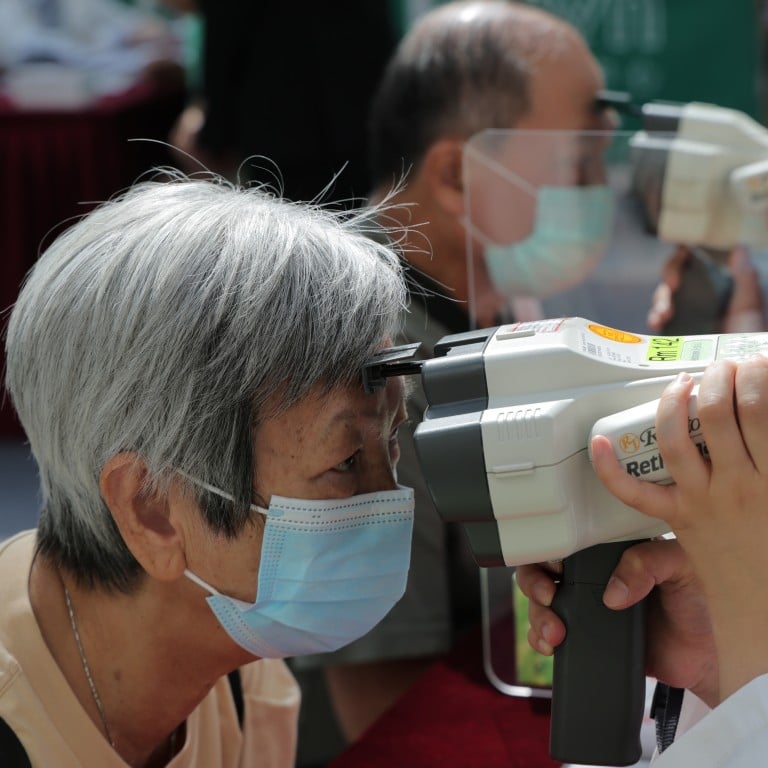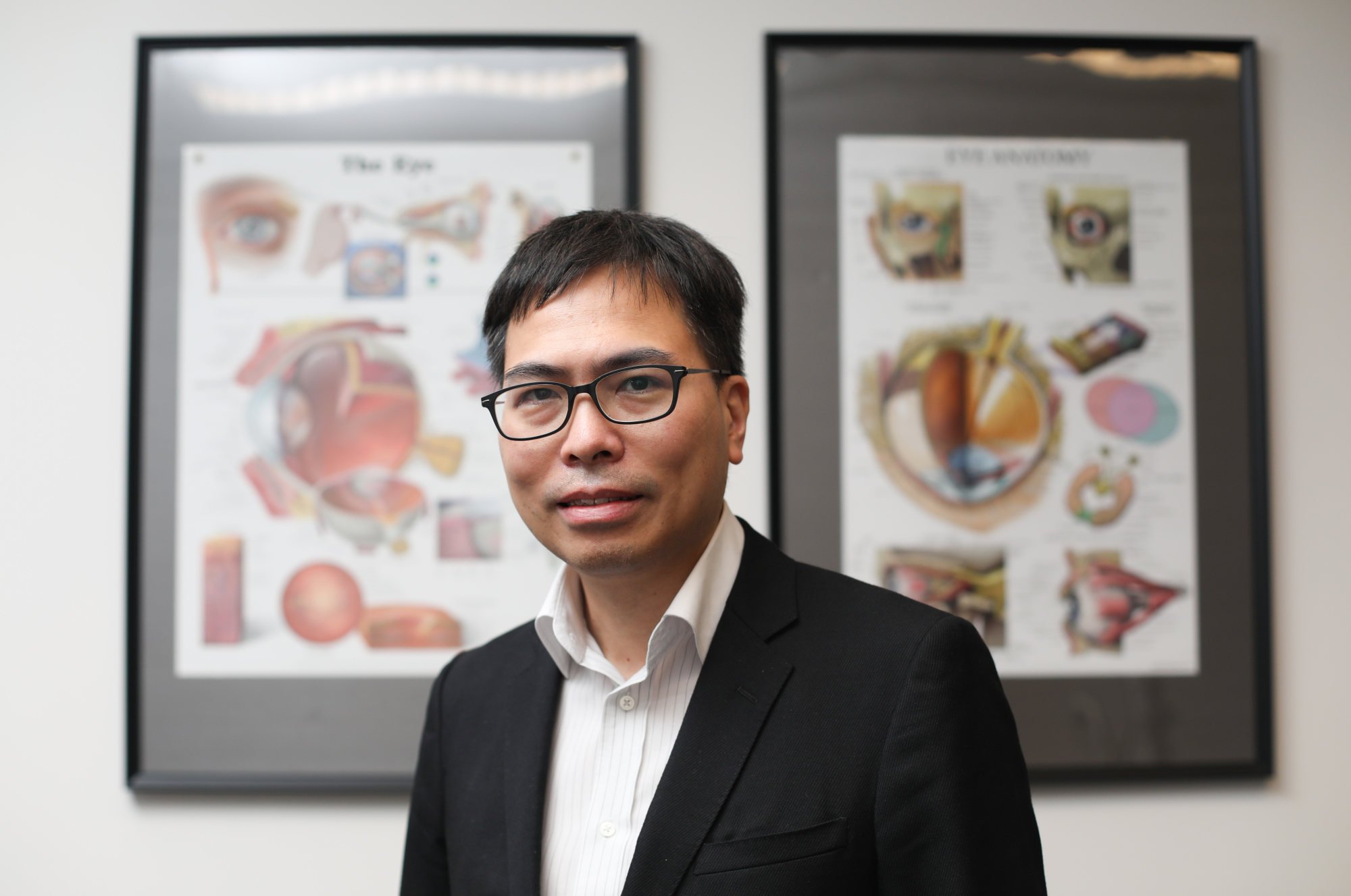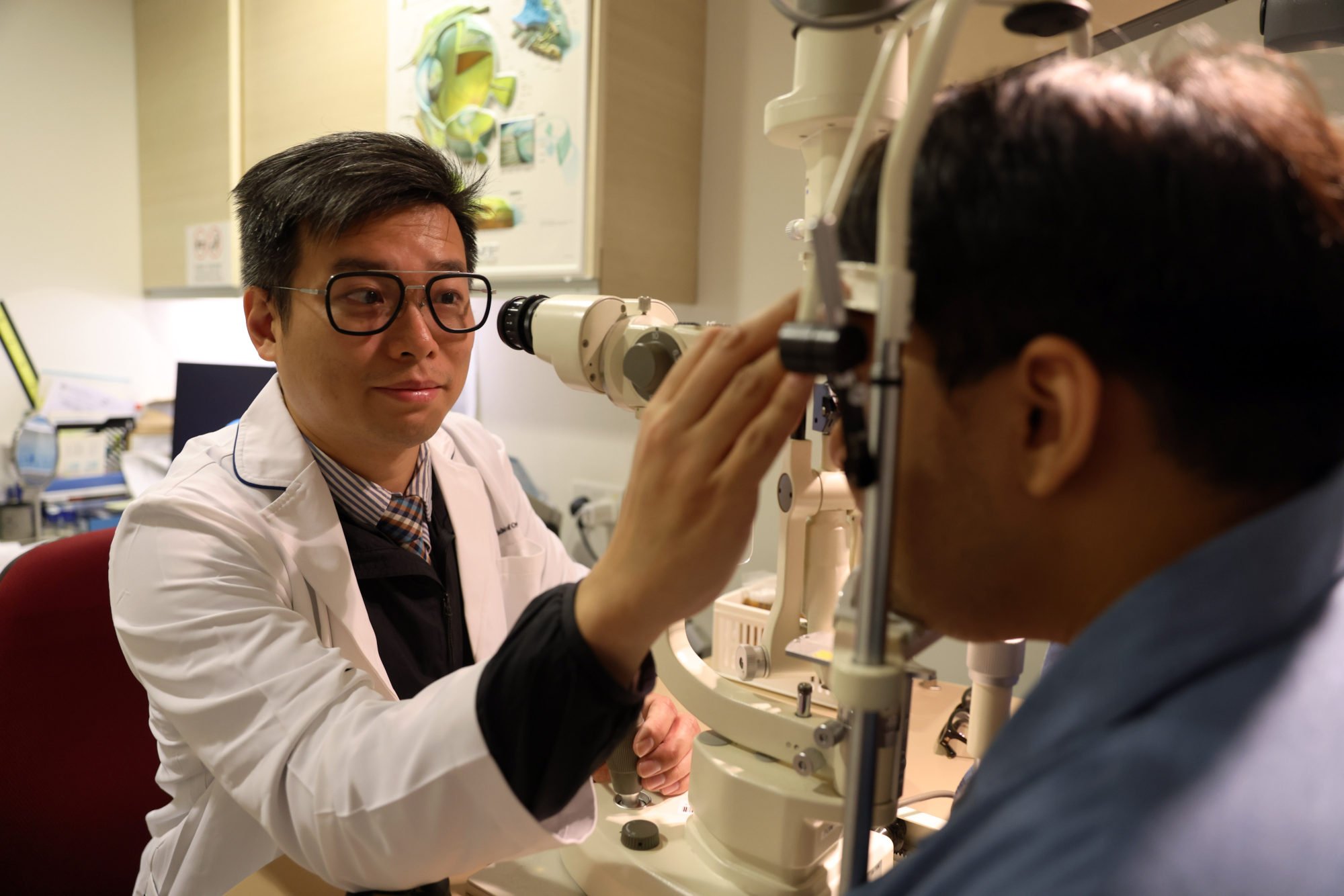
Hong Kong should offer subsidised eye screenings in all districts to pre-empt ailments and prioritise elderly: experts
- Experts call for publicly funded eye screenings at city’s 18 district health centres to monitor for conditions such as glaucoma, cataracts, and macular degeneration
- ‘An ageing population means that there could be more problems associated with these diseases,’ HKU eye expert warns
Hong Kong should provide primary eye care services at a district level to pre-empt an expected rise in related conditions brought about by the city’s ageing population, experts have said.
“Many eye diseases are age-related, such as glaucoma, cataracts, age-related macular degeneration,” said Professor Christopher Leung Kai-shun, chairman and clinical professor of the department of ophthalmology at the University of Hong Kong (HKU).
“An ageing population means that there could be more problems associated with these diseases.”
Official figures show the number of residents aged 65 and above is expected to rise in the coming decades, reaching 2.74 million in 2046 from the 1.45 million recorded three years ago.
HKU and non-profit organisation Orbis published a study last month warning of “alarmingly high” rates of glaucoma, a common eye condition that can lead to blindness, among residents.
Authorities in recent years have promoted primary healthcare at a community level to prevent or detect diseases early.
But experts called for the city’s 18 district health centres established under the policy to provide publicly funded eye screenings, an option which is not widely available at present.
Publicly funded vision screening services are currently only offered at Department of Health facilities to preschoolers, primary and secondary school students for visual acuity problems, as well as at select district health centres.
HKU scholar Leung said comprehensive screenings were important in detecting serious conditions, including glaucoma, adding that simple check-ups at optical shops could not detect such issues.
“If there are no specific check-ups, many of those conditions can be missed. By the time patients identify the issues, it will already be too late,” he said.

Leung said district health centres or express stations could offer comprehensive screenings if they were equipped with a fundus camera, an optical coherence tomography (OCT) instrument and a slit lamp.
A fundus camera and OCT instrument could provide a more precise look at an eye’s internal structure, helping to detect glaucoma, diabetic retinopathy and macular degeneration, he explained.
The academic added that a slit lamp ensures healthcare professionals could check a patient’s cornea and observe for signs of cataracts.
Acquiring the three machines would cost a total of about HK$500,000 (US$63,900) to HK$600,000, he noted.
Since the devices provided non-contact examinations, they could be operated by trained technicians, optometrists or ophthalmic nurses, Leung said.
He added that images captured from the machines could be analysed by artificial intelligence-based software to identify abnormalities, with such systems potentially boasting an accuracy rate of more than 90 per cent.
“We hope that through this primary eye care platform, we do not have to exhaust the existing resources of ophthalmologists and miss some diagnosis,” he said.
‘Alarmingly high’ glaucoma rates in Hong Kong spark call for primary care services
Leung added that primary eye care services could also cover relatively mild conditions such as dry eye syndrome, as well as providing education to help the burden on public services.
Comprehensive eye examinations are currently offered on a private basis in the city, with prices ranging from a few hundred Hong Kong dollars to more than HK$1,000.
Leung said the city’s about 350 ophthalmologists were not enough to meet its huge demand for eye-related treatments and care.
The latest Hospital Authority data found patients in stable conditions could wait up to 204 weeks, or nearly four years, for their first appointment with public sector eye specialist clinics.
The study from HKU and Orbis last month showed about 8 per cent of residents tested had glaucoma, higher than the rate of 3.8 per cent in a population-based study conducted in mainland China’s Guangzhou in 2006.
The World Health Organization has identified refractive errors, cataracts, diabetic retinopathy, glaucoma and age-related macular degeneration as the five leading causes of vision impairment and blindness.
Leung warned glaucoma was irreversible, but said early detection of the condition and similar eye-related health problems could help prevent vision loss and degeneration of optic nerves.
“If we can have an early diagnosis, it can bring a huge improvement to [a patient’s] quality of vision and quality of life,” he said.

The Hong Kong Society of Professional Optometrists has called for greater primary eye care services for more than 10 years.
Bruce Chin Man-pan, the society’s current president, agreed that district health centres could play a role in offering screening services.
Chin said the few publicly available screening services generally could not identify other problems such as eye squints or vision focus issues.
He pointed to a government-led pilot scheme that offered diabetes and hypertension screenings at district health centres, arguing eye diseases were also chronic conditions that needed to be monitored.
“[Eye diseases] are often a long process turning from [a healthy] condition to diseases as a person ages,” Chin said.
New eyesight tests to spot blindness-causing disease to be used in Hong Kong
Optometrists, whom he described as playing a “gatekeeper” for eye health, could offer comprehensive check-ups at the centres, with specialists working at district-level facilities at least one day a week in the beginning.
Chin said elderly people and children should be prioritised for screenings.
He added that most people failed to go for their recommended once-a-year eye screening, which he attributed to a lack of awareness of where to get tested.
“It seems everyone is not sure what primary eye care is,” he said. “If an intervention can be once a person’s vision starts to get blurry, primary care could already have a role.”
The Health Bureau said there was currently no consensus among local experts on the effectiveness of population-wide visual impairment screenings, including for conditions such as glaucoma.
There was also no consensus overseas on the need for screenings for older adults, it added.
“Excessive screenings under a public health programme not only waste resources for the overall public health, but also runs out of resources that can be invested in other projects in greater need, often causing more harm than good,” it said.

